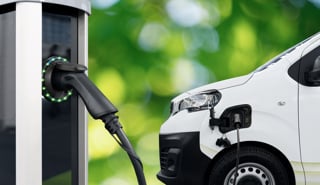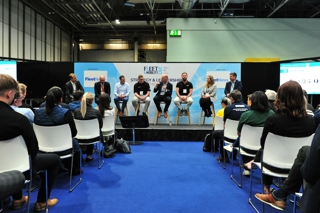Nearly 50 new players from the technology sector came together with five of the world’s leading motor industry brands, to help shape the future of transport and mobility.
The Society of Motor Manufacturers and Traders‘ (SMMT) Future Mobility Challenge was designed to drive cross-sector collaboration and could result in new partnerships, routes to market, investments and acquisitions between automotive companies and innovative technology start-ups and SMEs.
The 49 start-ups and SMEs were shortlisted from 94 Challenge entries and invited to pitch innovative mobility solutions to some of the biggest names in the automotive sector - BMW, Jaguar Land Rover, Bosch, Ford and Toyota. From data solutions to digital applications for shared mobility, fleets and new subscription models, and from new cyber security solutions to AI in future vehicles, some of the innovations pitched today could one day redefine the future of mobility and, indeed, the automotive sector.
Mike Hawes, SMMT chief executive, said: “SMMT’s first Future Mobility Challenge provides the perfect opportunity for automotive industry leaders and innovative technology SMEs to collaborate. From future vehicle technologies and innovative connected car services, to intelligent data tools and cyber security solutions, innovators from across the country are presenting technology advancements that could help shape the future the industry in the UK. The challenges facing the automotive sector are significant but exciting and it’s clear that innovation will be key. We want to encourage the brightest and the best to be part of that future, one that will define the future of mobility.”
Jesse Norman, Future of Mobility minister, added: “We are on the cusp of an exciting and profound change in how people, goods and services move around the country. The UK can become a global leader in this coming transport revolution.
“That’s why the Future of Mobility is one of the Government's four Industrial Strategy ‘Grand Challenges’. It seeks to change the way we think about transport in fundamental ways, to the economic, social and cultural benefit of the UK as a whole.”





















Login to comment
Comments
No comments have been made yet.